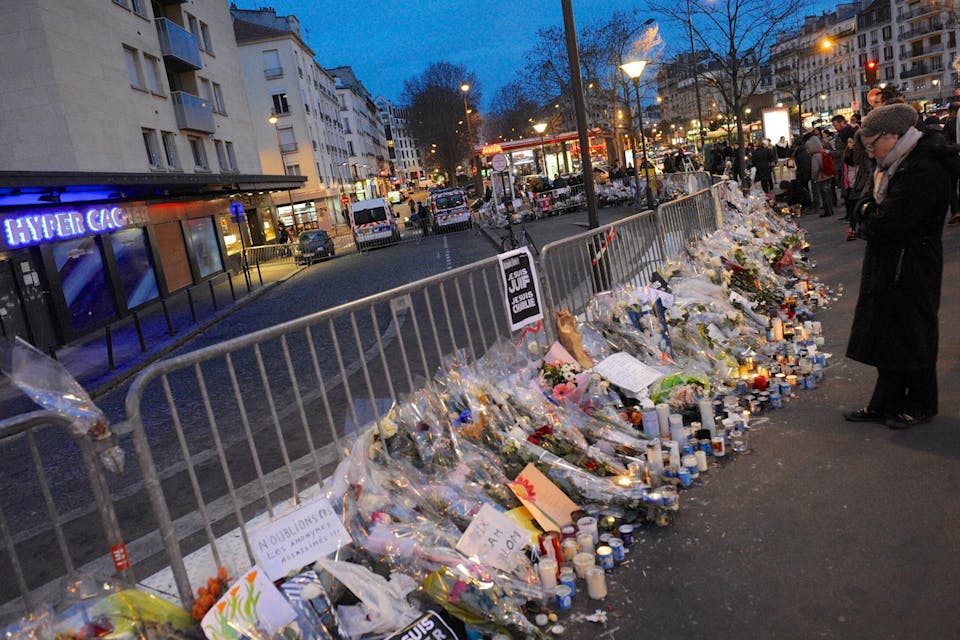
October 6, 2016
How France’s Failure to Confront Anti-Semitism Led to Its Failure to Stop Terrorism
By Shmuel TriganoAllegedly there is no anti-Semitism in France—only Jewish "communalism."
Listening to French politicians, journalists, and intellectuals responding to the seafront massacre in Nice in mid-July of this year, or to the murder two weeks later of a priest in the village of Saint Etienne du Rouvray, one could not escape a feeling of déjà vu. By now, official France has developed a carefully scripted ritual for reacting to such Islamist attacks. Prior to this past summer’s events, the script was most conspicuously deployed in the wake of the killings at the satirical weekly Charlie Hebdo on January 7, 2015, and before that on the occasion of a jihadist spree in Toulouse in 2012; but its use can be traced back much farther in time.
The ritual opens with an outpouring of compassion for the victims, as public officials, stunned by the horror of the event, appear too deeply engulfed in emotion to process its significance or formulate what might be done about preventing its recurrence. This is followed rapidly, almost reflexively, by a choreographed rite of “no-linkage,” whereby politicians assure the public that the latest bloodshed “has nothing to do with Islam.” With a barrier thus erected to any rational consideration of the killers’ self-professed motives, it is but a short step to the third phase: solemn warnings against the dangers of “Islamophobia,” itself a concept mobilized solely for its utility in a larger strategy of evasion.
The object of this strategy, which derives much of its moral force from an implicit parallel with the socially sanctioned French struggle against all forms of racism, is to foreclose any ideological or political debate about Islam. The term “Islamophobia” itself—meaning fear of a religion rather than fear of murderers who invoke or otherwise identify themselves with that religion—is meant to imply that anyone engaged in criticism of Islam or its proponents is by definition suffering from a psychiatric disorder. And this gives the game away: would an atheist’s critique of Christianity or of Judaism be described as a phobia? The question answers itself. By means of this term, one religion, and only one, is singled out for official protection.